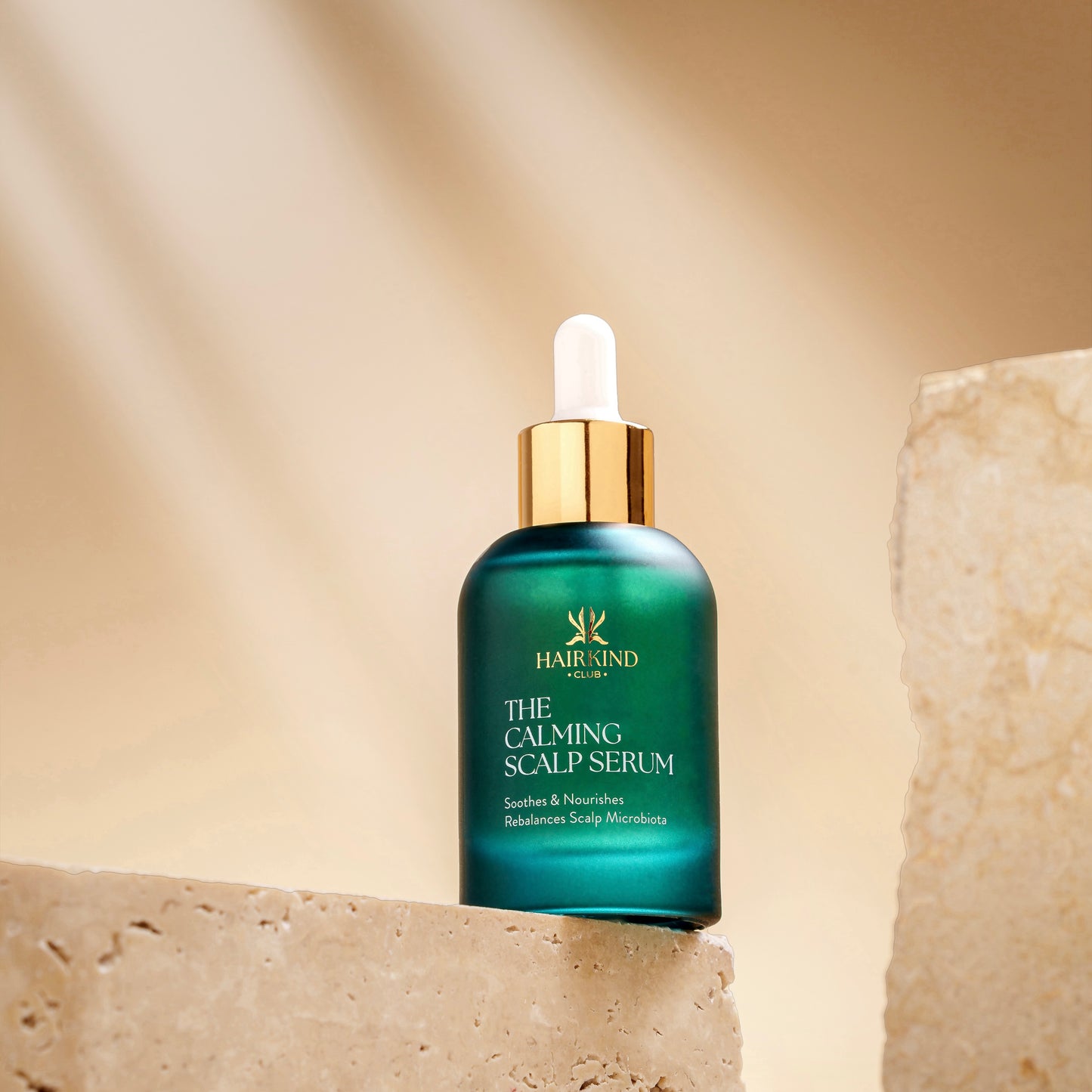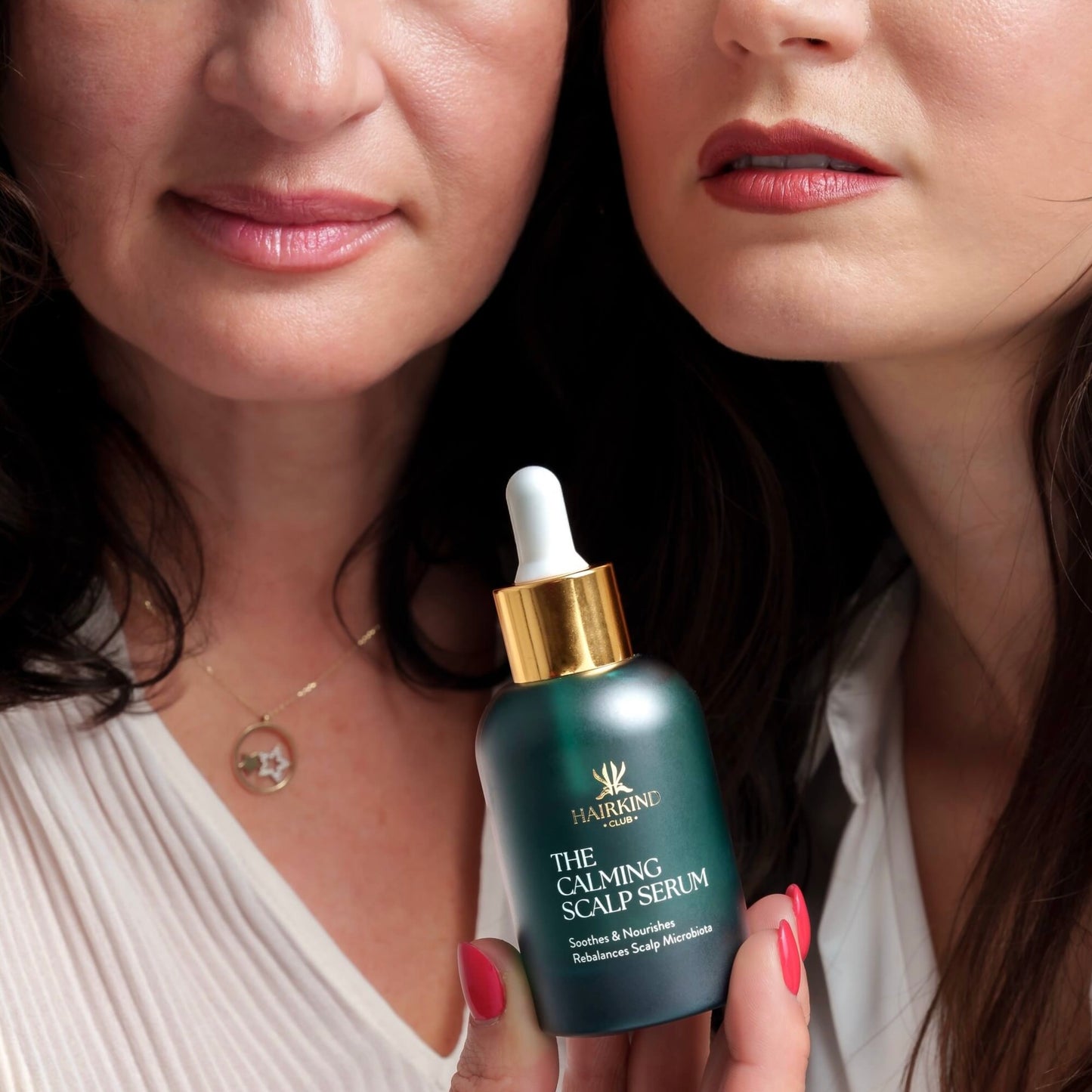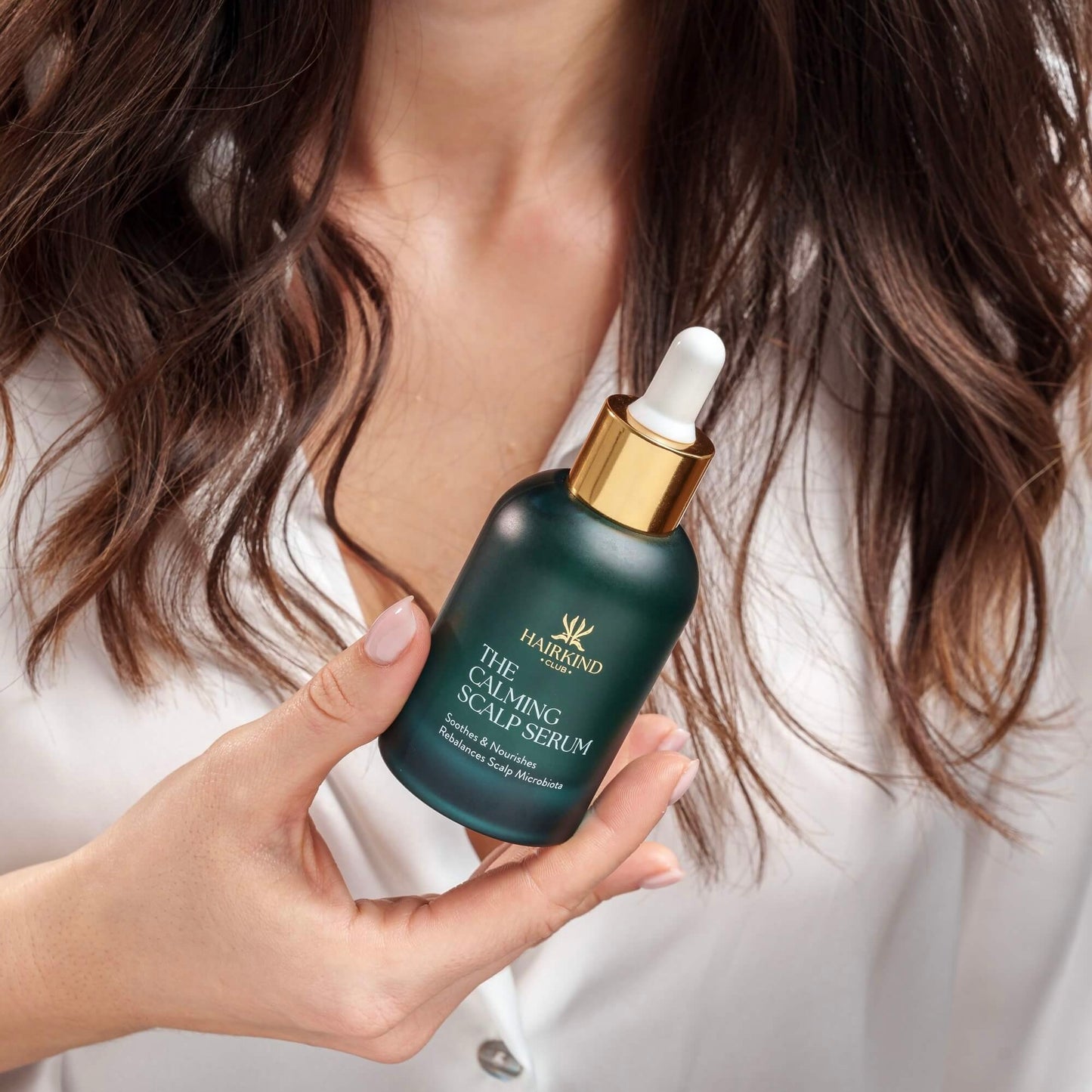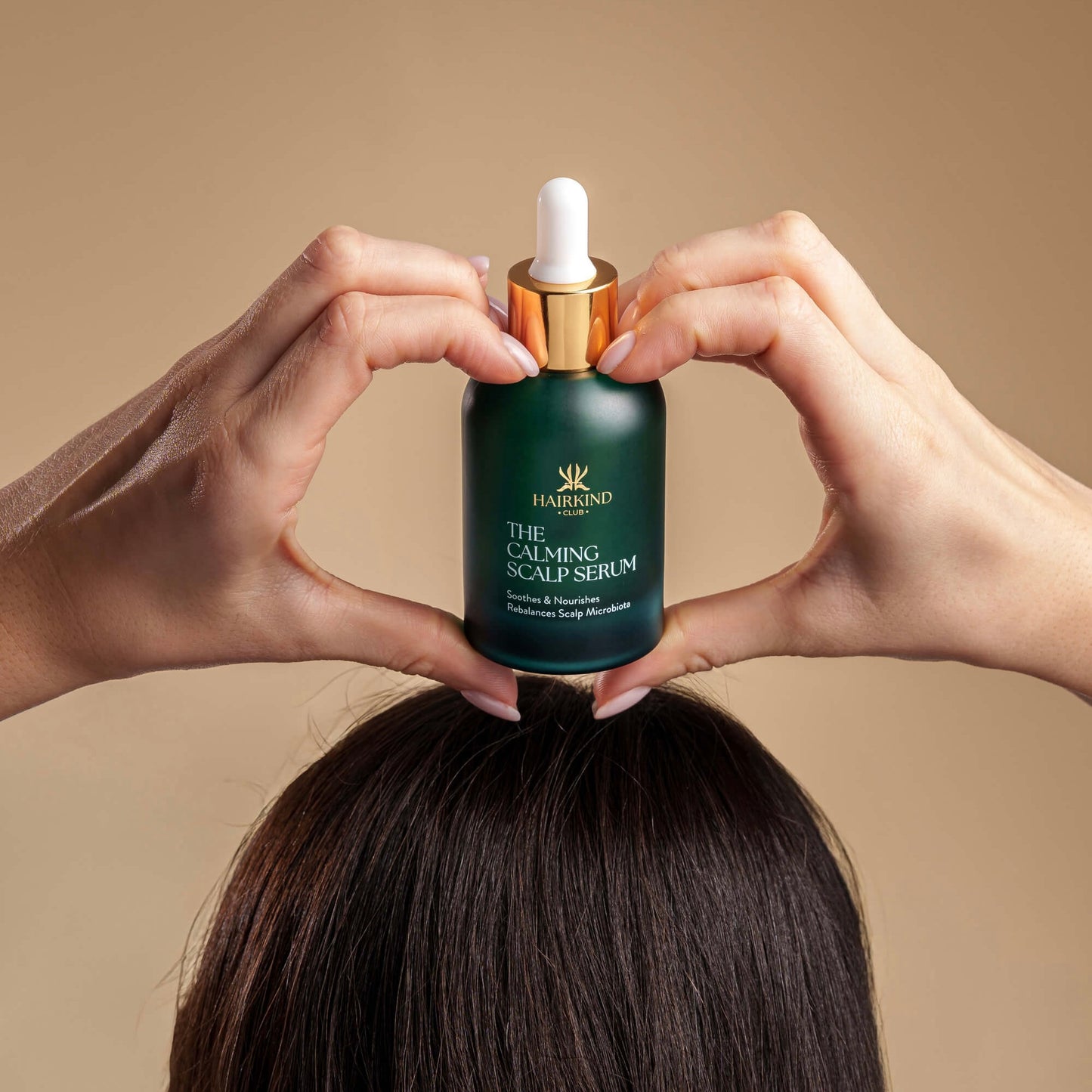The gut is often called our "second brain" and for good reason. The enteric nervous system that lines our digestive tract contains over 100 million neurons - more than in our spinal cord. This complex system maintains constant communication with our brain through what scientists call the gut-brain axis, directly influencing our skin's health and immune responses.

When it comes to skin conditions like dandruff and seborrheic dermatitis, this connection becomes even more crucial. The gut microbiome, home to trillions of microorganisms, plays a fundamental role in regulating inflammation, immune responses and even the production of nutrients that affect our skin's health. An imbalanced gut microbiome can trigger systemic inflammation that manifests as skin issues, while a healthy gut can help maintain clear, resilient skin.
Living with seborrheic dermatitis or persistent dandruff can be challenging, but understanding this gut-skin connection helps explain why managing your diet can significantly impact your symptoms. This article explores foods to avoid, beneficial nutrients, and dietary strategies to help control these conditions through the lens of gut health and systemic inflammation.

Foods to Avoid
Your skin's health is deeply connected to what you eat. Certain foods can trigger inflammation and worsen irritation, redness, flakes and itchiness:
Spicy Foods
Capsaicin, the active compound in spicy foods, triggers neurogenic inflammation by stimulating substance P release in dermal tissues. This biochemical process increases local blood flow and activates inflammatory mediators. In simpler terms, spicy foods make your skin more reactive and sensitive. They can trigger excess oil production in your scalp, create a more hospitable environment for Malassezia yeast and cause sweating that further irritates inflamed areas. Many people report increased itching and redness within hours of consuming spicy meals.

Refined Sugars and Sweets
High glycemic foods directly influence the proliferation of Malassezia furfur and other lipophilic yeasts through glucose-dependent metabolic pathways. In everyday language, sugar feeds the microorganisms responsible for seborrheic dermatitis. It also triggers insulin spikes that increase sebum production and promote inflammatory cytokine release. Regular consumption can disrupt your skin's natural barrier function, make existing patches/flakes more severe, and potentially create new areas of irritation. Even natural sugars like honey and maple syrup should be consumed in moderation.

Fried Foods
The thermal oxidation of cooking oils produces advanced glycation end-products (AGEs) and pro-inflammatory compounds that disrupt the skin's microbiome balance. These foods significantly alter the omega-3 to omega-6 fatty acid ratio in cell membranes, leading to increased inflammatory responses. For your scalp health, this means more oil production, compromised barrier function and a more favorable environment for Malassezia growth. The trans fats often present in fried foods can also impair cellular repair mechanisms. Additionally, these foods can increase systemic inflammation that manifests in existing dermatitis patches.

Dairy Products
Dairy contains insulin-like growth factor 1 (IGF-1) and androgen precursors that can stimulate sebaceous gland activity and alter skin cell turnover rates. When consumed, these compounds can trigger an inflammatory cascade that affects your skin's microbiome. Many people experience increased scaling and redness within 24-48 hours of dairy consumption. The proteins in dairy can also trigger immune responses in sensitive individuals, leading to increased inflammation. Even lactose-free products may still contain the hormonal compounds that affect skin health.

Refined Carbohydrates
These high-glycemic foods rapidly convert to glucose, triggering insulin responses that increase androgen activity and sebum production in the scalp. The rapid glucose spike provides readily available nutrition for Malassezia colonies. This creates a cycle of increased yeast population, more severe symptoms, and compromised skin barrier function. White flour products also lack the beneficial nutrients found in whole grains that support skin health. The inflammatory response can persist for several days after consumption.

Beneficial Foods and Nutrients
Non-Acidic Fruits
Fruits like pears, melons, berries and bananas provide essential nutrients without potentially irritating acids. They're rich in antioxidants that support skin health while being gentle on sensitive systems.

Leafy Green Vegetables
These powerhouses are packed with vitamins A, C, and K, as well as minerals that support skin health. They also contain anti-inflammatory compounds that may help reduce flare-ups. Some of the options include:
- Kale (extremely high in vitamins A, C, and K)
- Spinach (rich in iron and antioxidants)
- Swiss chard (excellent source of vitamins A, C, and magnesium)
- Collard greens (high in calcium and anti-inflammatory compounds)
- Arugula (contains glucosinolates that support skin health)
- Watercress (packed with antioxidants and skin-supporting nutrients)
- Microgreens (concentrated source of nutrients, especially broccoli microgreens)

Nuts and Seeds
Whether raw or roasted, nuts provide essential fatty acids and vitamin E. However, stick to unsalted varieties to avoid potential inflammation triggers.
- Pumpkin seeds (rich in zinc, which helps fight inflammation and supports skin healing)
- Brazil nuts (high in selenium, a powerful antioxidant for skin health)
- Walnuts (excellent source of omega-3 fatty acids and vitamin E)
- Almonds (packed with vitamin E and beneficial fatty acids)
- Sunflower seeds (high in vitamin E and zinc)
- Chia seeds (rich in omega-3s and anti-inflammatory properties)
- Flaxseeds (contain lignans and omega-3s that support skin health)
- Hemp seeds (perfect balance of omega-3 and omega-6 fatty acids)

Essential Nutrients for Skin Health
Vitamin D3
This crucial vitamin plays a vital role in skin health by:
- Regulating skin cell growth and differentiation
- Supporting the skin's immune system
- Potentially controlling inflammation
- Helping maintain the skin barrier
Many people with scalp issues are found to have low vitamin D levels. Supplementation, under medical supervision, may help improve symptoms.
Natural food sources of Vitamin D3 include:
- Fatty fish (salmon, mackerel, tuna)
- Egg yolks from pasture-raised chickens
- Beef liver
- UV-exposed mushrooms
- Fortified foods (some milk products, cereals and oranges)

Vitamin K2
While less discussed, vitamin K2 works synergistically with vitamin D3 to:
- Support proper calcium distribution in the body
- Enhance vitamin D's effectiveness
- Potentially reduce inflammation
- Support skin healing
Rich dietary sources of Vitamin K2 include:
- Natto (fermented soybeans)
- Hard and soft cheeses (particularly from grass-fed animals)
- Egg yolks
- Grass-fed butter
- Organ meats
- Fermented vegetables (sauerkraut, kimchi)
- Dark meat chicken

Omega-3 Fatty Acids
Fish oils and omega-3s are particularly beneficial because they:
- Reduce inflammation throughout the body
- Support the skin's natural barrier function
- Help maintain proper moisture levels in skin cells
- May reduce the frequency and severity of flare-ups
Good sources include:
- Fatty fish (salmon, mackerel, sardines)
- Fish oil supplements
- Flaxseeds
- Chia seeds
- Walnuts

Additional Dietary Tips
1. Stay hydrated by drinking plenty of water throughout the day
2. Consider reducing alcohol consumption, as it can dehydrate the skin and trigger inflammation
3. Maintain a food diary to identify potential trigger foods
4. Focus on whole, unprocessed foods
5. Include probiotic-rich foods to support gut health, which can influence skin conditions

Taking Action: Your Diet and Scalp Health Plan
While diet alone may not cure persistent dandruff nor seborrheic dermatitis, it can play a significant role in managing symptoms. Remember that everyone's triggers and beneficial foods may differ slightly. Pay attention to how your skin reacts to different foods and adjust your diet accordingly. Always consult with healthcare providers before making significant dietary changes, especially when introducing new supplements.

Remember: A healthy diet supporting skin health is a marathon, not a sprint. Give your body time to respond to dietary changes, and be consistent with your approach for the best results.













